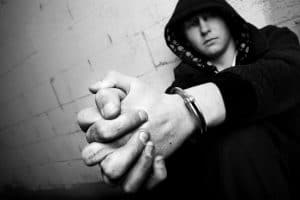Most crimes committed by minors are tried in juvenile court.
In our society, we view children as deserving of certain protections — including when they commit crimes. In California, the juvenile justice system is set up to provide options for children who run afoul of the law. However, some crimes are considered so serious that even if the child who committed it is under the age of 18, he or she may be tried as an adult.
As a general rule, crimes committed by children under the age of 18 are tried in juvenile delinquency court. It is not part of the criminal system, but the civil law system, and the cases are typically considered confidential. When a case is heard in juvenile delinquency court, the judge does not find the minor to be innocent or guilty; instead, the judge will sustain the petition if he or she finds that the minor committed the crime beyond a reasonable doubt. The judge can then issue a number of different “dispositions” (sentences) for the juvenile, such as paying a fine or restitution, community service, being placed on probation or parole, being committed to the California Youth Academy or being made a ward of the court. Once the minor successfully completes the terms of the program, the charges are dismissed. Unlike the adult criminal justice system, the primary goal of the juvenile justice system is not retribution, but rehabilitation.
However, there are some cases where a child under the age of 18 commits a crime and can be tried as an adult. Under California law, if a minor age 14 or older commits a serious crime, he or she can be tried as an adult. These crimes include:
- Murder;
- Rape with force, violence or threat of great bodily harm;
- Spousal rape with force, violence or threat of great bodily harm;
- Forcible sex in concert with another;
- Attempted murder
- Lewd and lascivious acts on a child under 14 with force, violence or threats of great bodily injury;
- Torture
- Forcible sexual penetration;
- Carjackings
- Sodomy or oral copulation by force, violence or threat of great bodily injury;
- Arson
These crimes are known as Section 707(b) offenses. If a minor commits one of these listed offenses, a prosector can file charges against him or her directly in criminal (adult) court, or can request a hearing to have the judge determine if the juvenile is fit to stand trial as an adult. This is known as a fitness hearing.
A prosecutor has discretion in how to handle these cases. If a minor aged 14 or older is alleged to have personally committed a particular crime — such as murder or a specific sex crime — then the prosecutor can directly file the case in criminal court. If the juvenile is aged 16 or older, then the prosecutor can also directly file the case in criminal court. There are other circumstances in which the prosecutor may elect to directly file a criminal case against a minor who has committed a 707(b) offense. An experienced California criminal defense attorney can work with you if you or your child has been accused of a crime and is facing prosecution in criminal court.
The criminal justice system is complex, and can be harsh for minors who commit serious crimes. If you or someone you love has been accused of a crime, the Chambers Law Firm can help. Contact our office today at 714-760-4088 or dchambers@clfca.com to schedule a free initial consultation. We will fight for your rights — and for your freedom!





